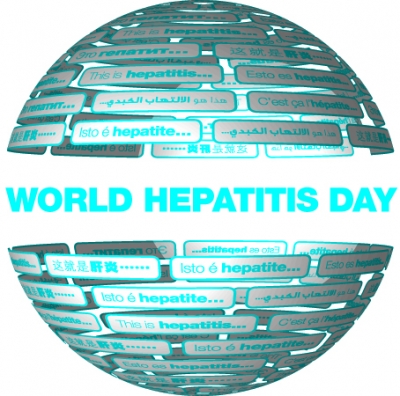|
This Sunday, July 28, is World Hepatitis Day, one of WHO’s (World Health Organization) seven officially mandated global public health days. From worldhepatitisday.org: "Worldwide, 300 million people are living with viral hepatitis unaware. Without finding the undiagnosed and linking them to care, millions will continue to suffer, and lives will be lost. On World Hepatitis Day, 28 July, we call on people from across the world to take action and raise awareness to find the 'missing millions.'" Dr. Asim Khokhar and Dr. Michael Clores in our Gastroenterology & Hepatology division weigh in on the advancements made, and the challenges we still face. Dr. Khokhar: "This year is the 30th anniversary of the discovery of Hepatitis C, which is a potentially life-threatening virus. We are very lucky to have witnessed the breakthrough and a miracle of sorts where within less than 3 decades of being discovered, we are looking at close to 100% cure rates. "Hepatitis C treatment has evolved from a difficult and painful, year-long endeavor to as less as 8 weeks of oral pills with minimal side effects. "This is a testament to the commitment, dedication, collaboration, and hard work of the researchers, clinicians, pharmaceutical companies and of course the participation of patients and the trust they placed in their providers by participating in clinical trials. "There is still a lot of work to be done, there is still a large number of patients with undiagnosed Hepatitis C and also the lingering effects of Hepatitis C even in patients who have been treated, in the form of advanced fibrosis and cirrhosis, some of whom are lost to follow up after treatment, incorrectly thinking that since they are cured so they don’t need to follow up. Patients with cirrhosis, even after Hepatitis is cured, are still at risk for developing liver cancer and need regular screenings. Moreover, now the focus can also shift to improving treatment and hopefully finding 'cures' for the other menace 'Hepatitis B'." Dr. Clores: "Screening and diagnosing viral hepatitis in high-risk populations is important in order to identify those who will benefit from disease-specific antiviral treatments. Identifying and treating (when appropriate) Hepatitis B and Hepatitis C is crucial in preventing the development of liver cirrhosis, which is often irreversible. Antiviral treatments in recent years have greatly improved with high cure rates and minimal to no side effects." In our liver disease clinic at Stony Brook Medicine, we treat and evaluate the most common disorders of the liver, including the different types of Hepatitis. The Department of Medicine is committed in joining the fight to normalize hepatitis testing, and reducing the stigmas.
|
|
 |